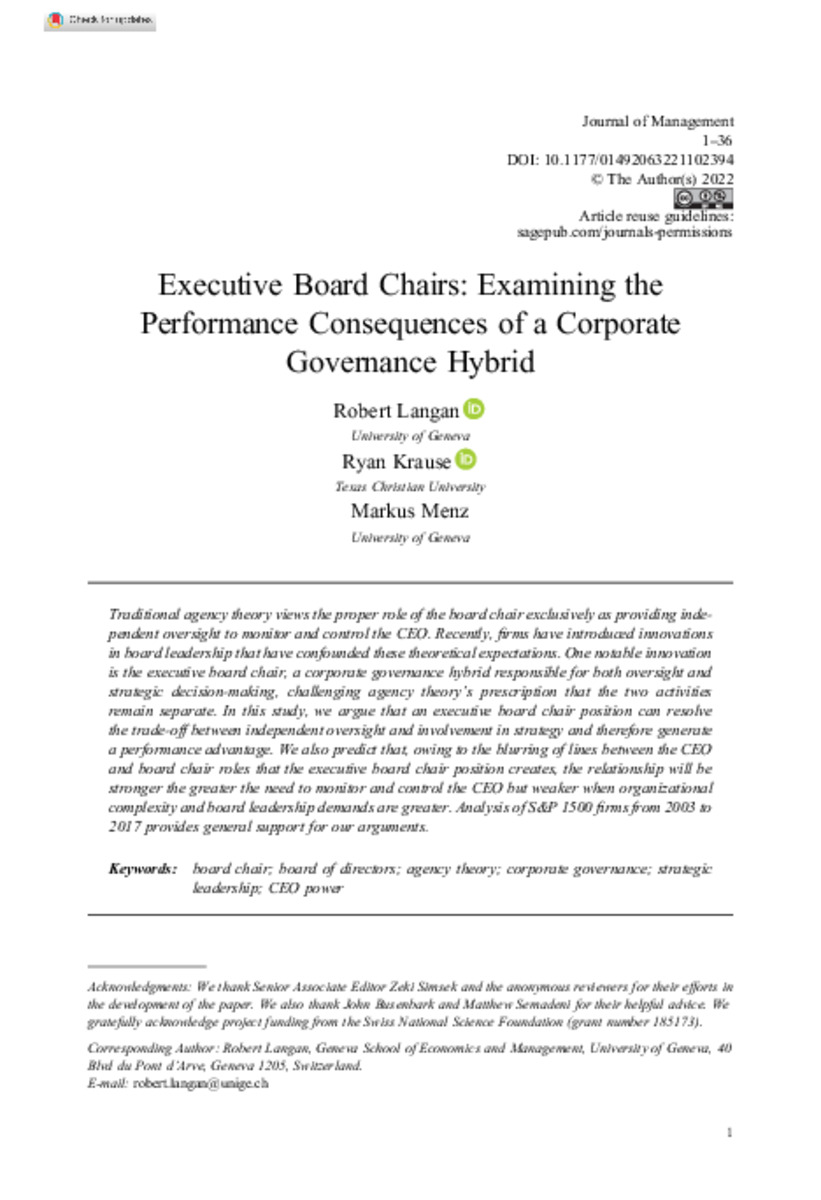Executive Board Chairs: Examining the Performance Consequences of a Corporate Governance HybridShow full item record
| Title | Executive Board Chairs: Examining the Performance Consequences of a Corporate Governance Hybrid |
|---|---|
| Author | Langan, Robert; Krause, Ryan; Menz, Markus |
| Date | 2022 |
| Abstract | Traditional agency theory views the proper role of the board chair exclusively as providing independent oversight to monitor and control the CEO. Recently, firms have introduced innovations in board leadership that have confounded these theoretical expectations. One notable innovation is the executive board chair, a corporate governance hybrid responsible for both oversight and strategic decision-making, challenging agency theory's prescription that the two activities remain separate. In this study, we argue that an executive board chair position can resolve the trade-off between independent oversight and involvement in strategy and therefore generate a performance advantage. We also predict that, owing to the blurring of lines between the CEO and board chair roles that the executive board chair position creates, the relationship will be stronger the greater the need to monitor and control the CEO but weaker when organizational complexity and board leadership demands are greater. Analysis of S&P 1500 firms from 2003 to 2017 provides general support for our arguments. |
| Link | https://doi.org/10.1177/01492063221102394
https://repository.tcu.edu/handle/116099117/56567 |
| Department | Management and Leadership |
| Subject | Corporate governance
Principal–agent problem Position (finance) Accounting Control (management) Business Agency (philosophy) On board Executive compensation Public relations Management Marketing Economics Political science Sociology Finance Engineering Social science Aerospace engineering |
Files in this item
This item appears in the following Collection(s)
- Research Publications [1008]
© TCU Library 2015 | Contact Special Collections |
HTML Sitemap



